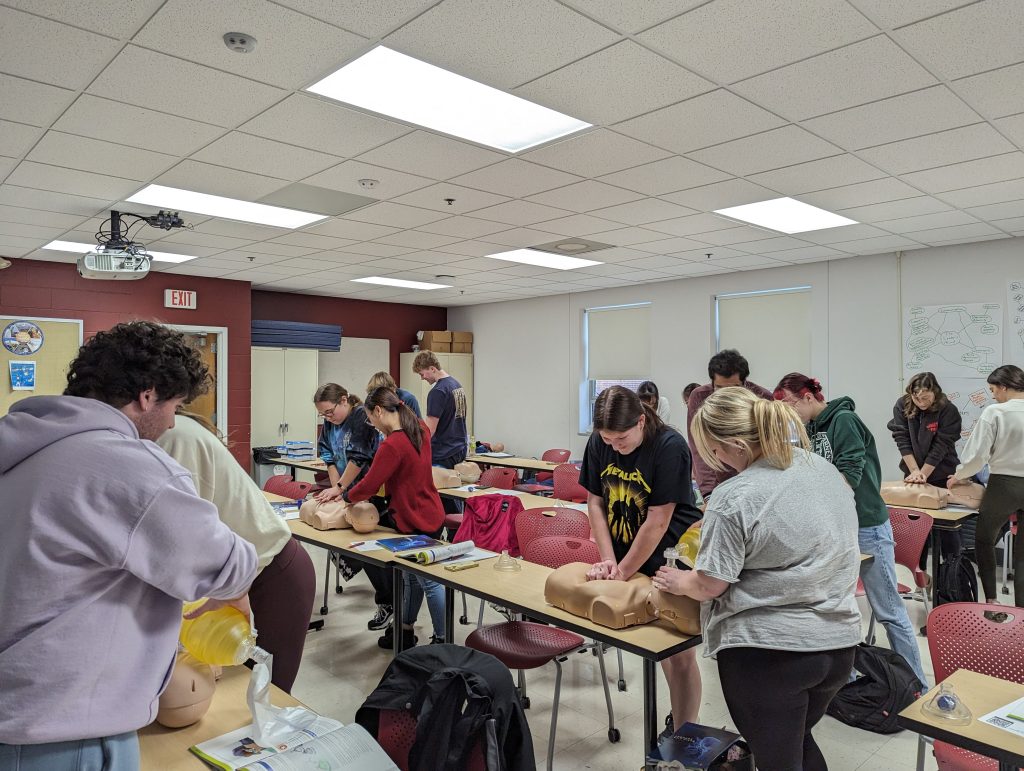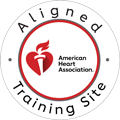Cardiac arrest affects approximately 700,000 people in the United States annually, making CPR certification a critical life-saving skill that can mean the difference between life and death. The American Heart Association (AHA) stands as the gold standard for CPR training, providing evidence-based guidelines and comprehensive certification programs that have saved countless lives across the nation.
When someone experiences cardiac arrest, immediate intervention becomes crucial for survival. Research demonstrates that immediate CPR, started within the first few minutes of cardiac arrest, doubles or even triples a person’s chance of survival. For each minute that passes without CPR and defibrillation, the survival rate decreases by approximately 7-10%. This stark reality underscores the importance of obtaining proper American Heart Association CPR certification.

Understanding American Heart Association Standards for CPR
The American Heart Association maintains rigorous standards for CPR certification that reflect the latest scientific research and real-world emergency scenarios. These updates reflect what has been proven to work best in real-life cardiac arrest situations. The goal? To save more lives. Here are the most important changes introduced in the 2025 AHA update: For adults, the focus remains on high-quality chest compressions.
The AHA’s comprehensive approach to CPR standards encompasses several key components that ensure effective life-saving interventions. High-quality chest compressions remain the cornerstone of effective CPR, requiring specific depth, rate, and recoil parameters. For adult patients, compressions must achieve a depth of at least 2 inches but no more than 2.4 inches, delivered at a rate between 100-120 compressions per minute.
Furthermore, the American Heart Association emphasizes the critical importance of minimizing interruptions during chest compressions. The organization’s guidelines specify that interruptions should be limited to less than 10 seconds, ensuring continuous blood flow to vital organs. This commitment to uninterrupted compressions has proven instrumental in improving survival outcomes for cardiac arrest victims.
The AHA’s training methodology incorporates hands-on practice sessions that simulate real emergency situations. These practical components ensure that certified individuals can perform CPR effectively under pressure, translating theoretical knowledge into life-saving action when seconds count most.
Call Us Now
Get the Best CPR Class in Kansas City Today!
How to Obtain American Heart Association CPR Certification in the USA
Securing American Heart Association CPR certification involves a structured process designed to ensure a comprehensive understanding and practical competency. The certification pathway begins with selecting the appropriate course level based on your professional requirements and personal goals.
The American Heart Association offers Basic Life Support (BLS) courses that teach CPR and AED skills for prehospital and in-facility environments. These courses are designed for healthcare professionals who require advanced certification to fulfill their workplace responsibilities. Additionally, the organization offers CPR and First Aid courses tailored for community members, educators, and individuals seeking fundamental life-saving skills.
The certification process typically involves both theoretical learning and hands-on practice. Participants engage with evidence-based curriculum materials that cover proper technique, recognition of emergencies, and appropriate response protocols. The practical component requires demonstrated proficiency in chest compressions, rescue breathing, and automated external defibrillator (AED) operation.
Modern American Heart Association training incorporates innovative learning approaches, including blended learning options that combine online modules with in-person skill sessions. The American Heart Association’s Resuscitation Quality Improvement (RQI) program is a groundbreaking new approach to maintaining competence in CPR. This flexible approach accommodates various learning preferences while maintaining the rigorous standards required for certification.
To locate authorized training centers, individuals can utilize the AHA’s official website directory, which provides comprehensive listings of certified instructors and training facilities nationwide. These AHA-authorized centers ensure that all instruction meets American Heart Association standards and provides valid certification upon successful completion.
Duration and Validity of American Heart Association CPR Certification
Understanding the validity period of American Heart Association CPR certification is essential for maintaining current credentials and ensuring continued competency. Upon completion of all course requirements, participants receive a BLS Provider Course Completion Card, which is valid for two years. This two-year validity period applies to most AHA CPR certifications, including Basic Life Support, CPR/AED, and First Aid certifications.
Many organizations offer CPR certification nationwide. They all share a standard: the certification is valid for two years. These two years are set because CPR skills tend to fade after a year. This affects both medical professionals and the public. The two-year renewal cycle reflects scientific understanding of skill retention and ensures that certified individuals maintain current knowledge of evolving guidelines and techniques.
The American Heart Association requires recertification every two years to maintain valid credentials. This renewal process involves completing updated training that incorporates the latest evidence-based guidelines and research findings. Most basic CPR certifications are valid for 2 years. Organizations like the American Heart Association (AHA), the Red Cross, and other nationally recognized bodies follow this standard. Similar to basic CPR certifications, BLS certifications generally need to be renewed every 2 years.
Importantly, the AHA’s renewal courses, often called “refresher” or “renewal” classes, typically require less time than initial certification courses while ensuring participants remain current with the latest techniques and guidelines. These abbreviated sessions focus on skill practice, updated protocols, and any recent changes to CPR standards.
The Science Behind American Heart Association Guidelines
The American Heart Association bases its CPR certification standards on extensive scientific research and evidence-based medicine. The organization discovers the latest evidence-based recommendations for CPR and ECC, based on the most comprehensive review of resuscitation science and practice. This commitment to scientific rigor ensures that AHA guidelines reflect the most effective life-saving techniques available.
Recent updates to American Heart Association standards emphasize the importance of high-quality compressions, early defibrillation, and coordinated team responses. These evidence-based modifications have demonstrated significant improvements in survival rates and neurological outcomes for cardiac arrest victims.
The organization’s research initiatives continuously evaluate new technologies, techniques, and approaches to emergency cardiovascular care. This ongoing scientific evaluation ensures that American Heart Association CPR certification remains at the forefront of life-saving education and maintains its reputation as the gold standard for emergency response training.
Professional and Community Impact
American Heart Association CPR certification extends far beyond individual skill development, creating a network of prepared responders throughout communities nationwide. Healthcare professionals rely on AHA certification to meet employment requirements and maintain professional competency. Many states and employers specifically require American Heart Association certification due to its rigorous standards and scientific foundation.
Community members who obtain AHA CPR certification become valuable assets in emergency situations, capable of providing immediate life-saving intervention while professional responders arrive. This community preparedness creates a safety net that significantly improves survival outcomes for cardiac arrest victims in various settings, from homes and schools to workplaces and public spaces.
The ripple effect of American Heart Association CPR certification training strengthens emergency response capabilities across entire communities. As more individuals obtain proper training, the likelihood of immediate, effective intervention during cardiac emergencies increases substantially, creating safer environments for everyone.
Choosing the Right Training Path
Selecting an appropriate American Heart Association CPR certification depends on individual circumstances, professional requirements, and personal goals. Healthcare providers typically require BLS certification, which includes advanced techniques and team-based response protocols. Teachers, coaches, and community leaders often benefit from CPR/AED certification combined with First Aid training.
The American Heart Association offers various course formats to accommodate different learning preferences and schedules. Traditional classroom instruction provides immediate feedback and hands-on guidance from certified instructors. Blended learning options combine online theoretical components with in-person skill sessions, offering flexibility while maintaining practical competency requirements.
Before enrolling in American Heart Association CPR certification training, individuals should verify that their chosen program meets specific professional or personal requirements. Many employers and regulatory bodies specify particular certification levels, making proper course selection essential for meeting compliance standards.
Frequently Asked Questions
What makes American Heart Association CPR certification different from other providers?
American Heart Association CPR certification stands out due to its evidence-based approach, rigorous scientific standards, and continuous research integration. The AHA bases its guidelines on comprehensive reviews of resuscitation science and maintains the highest quality standards for training and certification. Most employers and healthcare facilities specifically require AHA certification due to its reputation and credibility in the medical community.
Can I take the American Heart Association CPR certification online?
While the American Heart Association offers online components through programs like HeartCode, complete CPR certification requires hands-on skill demonstration. The organization provides blended learning options that combine online theoretical modules with in-person practical sessions where participants demonstrate proper technique to certified instructors. This approach ensures both knowledge acquisition and practical competency.
How much does American Heart Association CPR certification cost?
The cost of American Heart Association CPR certification varies depending on the course type, location, and training center. Basic CPR/AED courses typically range from $70 to $100, while healthcare provider BLS certification may cost $80 to $120. Advanced courses, such as ACLS or PALS, generally cost more. Contact authorized training centers directly for specific pricing information and potential group discounts.
What happens if my American Heart Association CPR certification expires?
If your AHA CPR certification expires, you’ll need to complete a full certification course rather than a renewal class. While some training centers may offer “challenge” courses for recently expired certificates, it’s best to renew before expiration to maintain continuous certification. Most employers require current, unexpired certification, making timely renewal essential for maintaining compliance.
Take Action: Get Your American Heart Association CPR Certification Today
Don’t wait for an emergency to realize the importance of life-saving skills. Whether you’re seeking CPR certification in Kansas City for professional requirements or personal preparedness, or need BLS certification in Kansas City for healthcare credentials, taking action today could save a life tomorrow.
CPR Kansas City is an American Heart Association training site that offers initial certifications and renewal in BLS for Healthcare Providers, ACLS, PALS, and CPR and First Aid courses. All classes are stress-free and hands-on, providing the best CPR training experience in Kansas City. Contact CPR Kansas City today to schedule your American Heart Association CPR certification and join the community of prepared life-savers who make a difference when it matters most.
Your decision to obtain American Heart Association CPR certification represents more than personal skill development – it’s a commitment to being prepared when someone’s life depends on your knowledge and quick action. Schedule your training today and become part of the solution in emergencies.


